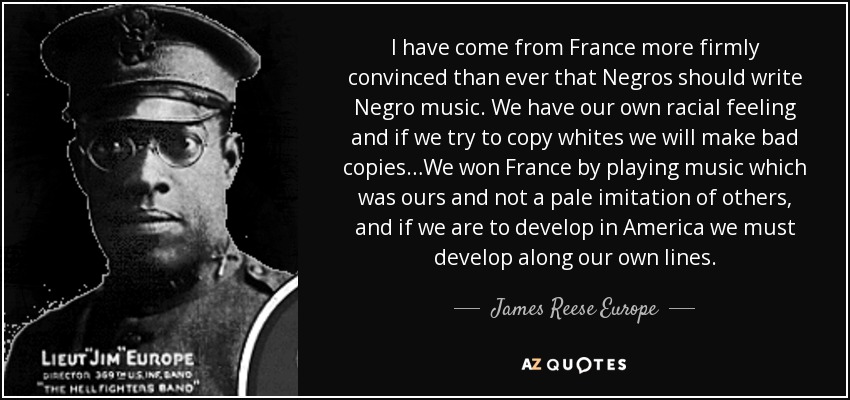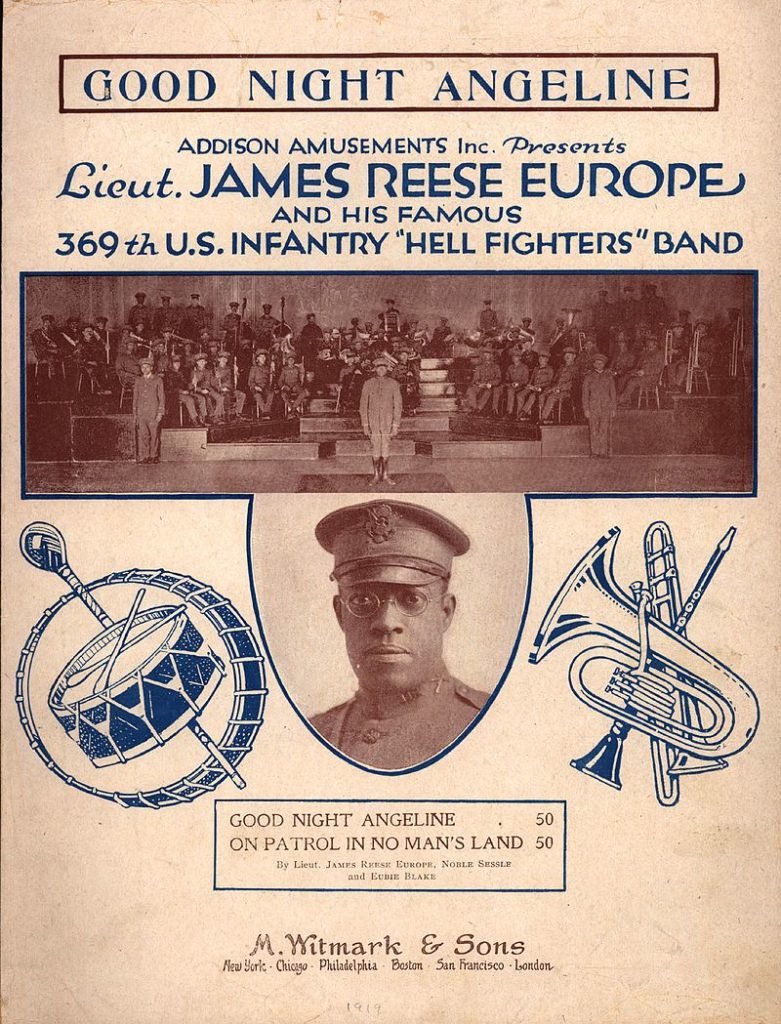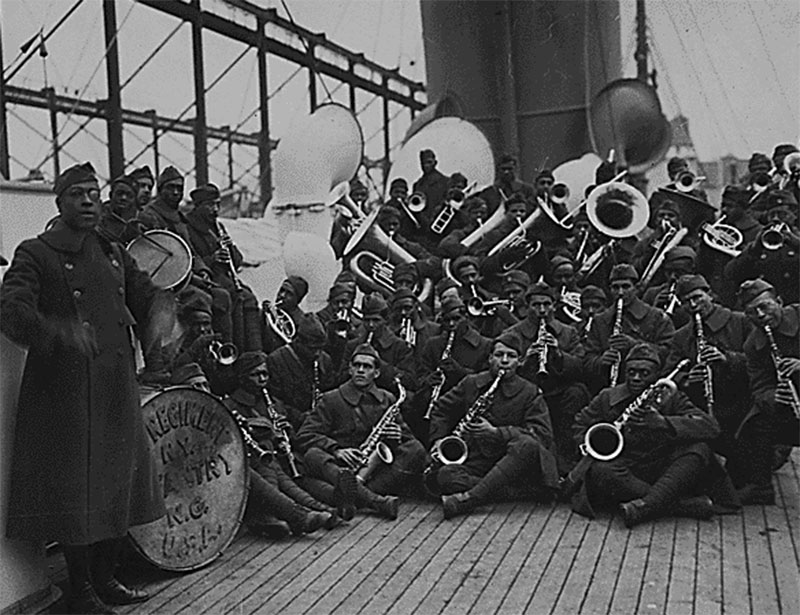
At the turn of the century in the 1900s between Reconstruction and the first World War there was born a man who was one of America’s most significant musicians. Tall. Black. Poised. A leader. A soldier. An organizer. And ultimately a tragic martyr who died at the hands of one of his own men.
His name was James Reese Europe. Born February 22, 1880 in Mobile, Alabama. When he was 10, his family migrated to Washington, DC. When he was 25 he set up permanent residence in New York City. He died May 9, 1919 in Boston, the victim of a jealous drummer in his band. He was only 39 years old.
Most of us have never heard of him. Although, during his life time, he was often billed as a king of jazz and a maestro of ragtime, today he is overlooked. Under appreciated. His life and musical compositions seldom cited.
Indeed, I was not consciously looking for him when a reference flashed on screen while I was online searching for something else. Even though I had recently included him in an essay I wrote for a presentation at the U.S. Mint in New Orleans on Esplanade Avenue at the Mississippi river, I did not have him in the top of my concerns. I am ashamed of myself. How could I forget so important a figure in our musical history?

Jim Europe was in demand in the major East Coast metropoles. He was admired, sought after, and constantly employed. In 1910 he organized the Clef Club, an all Black organization for people in the music industry. The Clef Club not only sponsored performances, it also served as a musician’s union and booking agency. In 1912 he gave an historic concert at Carnegie Hall, over a decade before George Gershwin and Paul Whiteman. For the concert, Europe assembled a 125 member orchestra. In 1913 he was among the first Black ensembles to make recordings on Victor Records.

Look at him. In 1916 he enlisted in the New York national guard. During the war years, Lieutenant Europe not only organized and led military bands he is credited with taking ragtime and jazz to Europe as a member and officer of the 369th Regiment, aka the Harlem Hellfighters in which he was both a band leader and the lead officer in a machine gun squad.
As I sat scanning my computer, all it took was one mention in passing, and the seed that was planted deep in my subconscious sprung awake. In less that five minutes on the internet I was able to reclaim Mr. Europe’s legacy.
Here are three videos, arranged in order of significance.
First is a brief animated introduction that gives an overview of Europe’s life.
The second video features footage and period photographs focusing mostly on his World War I experiences.
And the third features pianist Jason Moran giving an informal lecture about the work of this great man with piano demonstrations and ending with a mini-concert that includes three students on flute, saxophone and sousaphone.
Don’t be slow. Get in step. Learn about the greatness of James Reese Europe.
